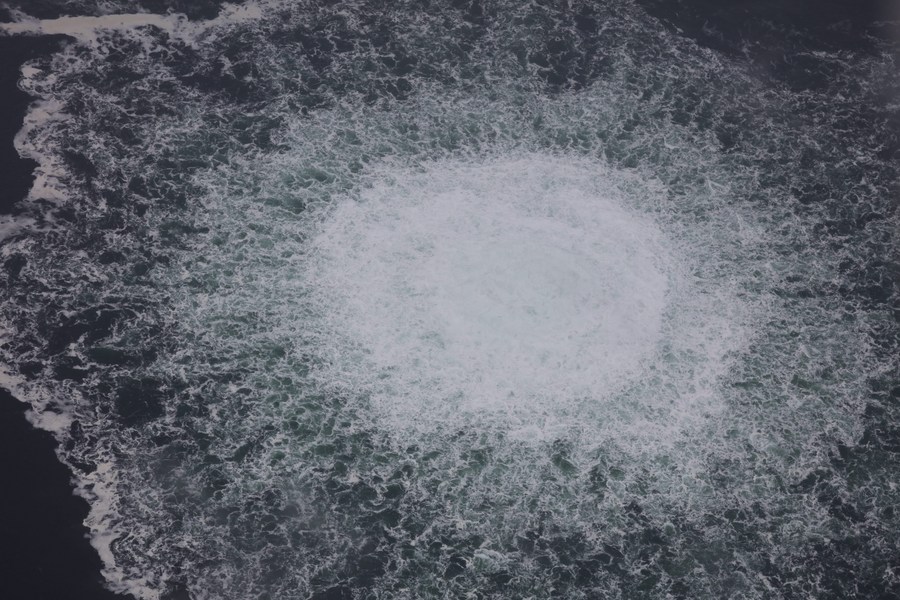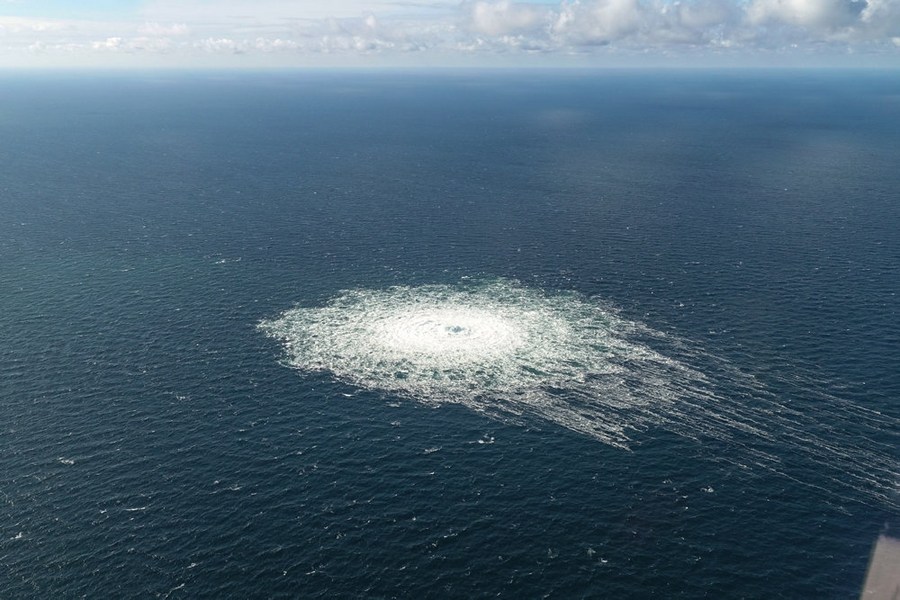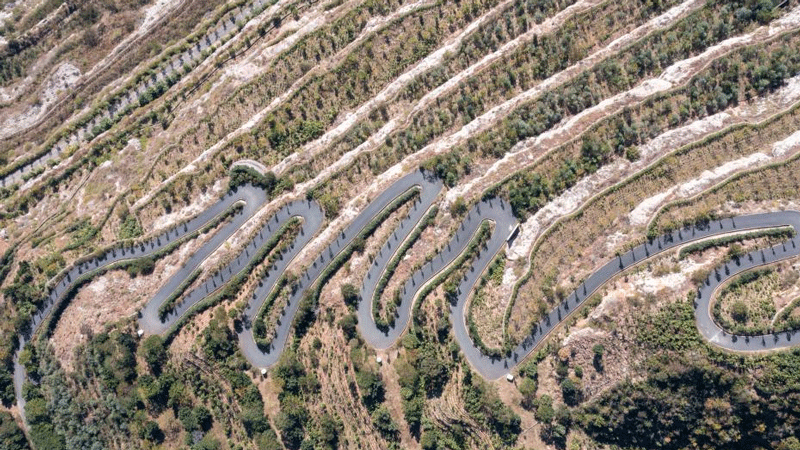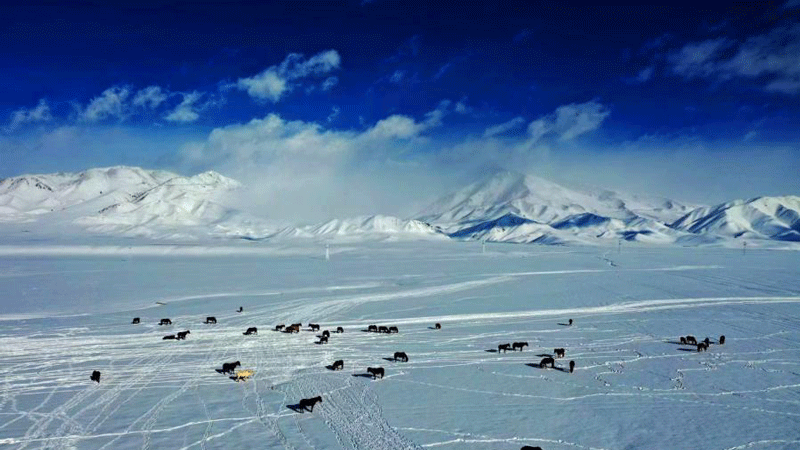Methane from Nord Stream leakages may threaten ecosystem: research

Aerial photo provided by the Swedish Coast Guard on Sept. 28, 2022 shows a gas leak on the Nord Stream 1 pipeline. (The Swedish Coast Guard/Handout via Xinhua)
"That large amounts of methane dissolved in the water will probably affect marine life," Thomas Dahlgren, a marine biologist at the university's Department of Marine Sciences, said.
STOCKHOLM, Dec. 11 (Xinhua) -- More than two months after the first Nord Stream gas leak was reported, methane levels are still elevated and may pose a threat to the ecosystem, researchers at a Swedish university said on Sunday.
Research has shown that "a significant part of the methane gas that leaked from the pipelines on the bottom of the Baltic Sea did not rise into the atmosphere. Instead, it dissolved in the water and spread with the currents," the University of Gothenburg said in a press release.

Aerial photo provided by the Swedish Coast Guard on Sept. 28, 2022 shows the fourth leak on Nord Stream 2 pipeline in Sweden's exclusive economic zone. (The Swedish Coast Guard/Handout via Xinhua)
"During the first two weeks, we saw extremely high levels of methane, almost too high for our sensors to measure and probably up to a hundred times higher than normal. Only now are we seeing a decrease back to normal levels, and even yet, we still sometimes see patches of very high methane," said Bastien Queste, an oceanographer at the university.
The research was done in cooperation with the Swedish marine research foundation Voice of the Ocean. Researchers deployed underwater robots to make continuous measurements and the data was sent to researchers via satellite.
"That large amounts of methane dissolved in the water will probably affect marine life," Thomas Dahlgren, a marine biologist at the university's Department of Marine Sciences, said.

Aerial photo released by the Danish Ministry of Defense on Sept. 27, 2022 shows the Nord Stream gas pipeline leak site. (Danish Defense Ministry/Handout via Xinhua)
His theory is that the rapid decline of methane is due to it being digested by bacteria, something that would lead to overfertilization and ocean acidification.
"That is what happened after a similar leak in the Gulf of Mexico in 2010," Dahlgren said.
The pipelines contained around 778 million cubic meters of methane when the pipelines were damaged, reported the Danish Energy Agency.
Photos
Related Stories
- Future terrestrial ecosystems to produce more oxygen for atmosphere: study
- New Zealand biologist describes journey to ocean's deepest region as "incredible"
- New Zealand scientists use satellites, drones, ROVs to better understand marine life
- ADB to support coral reefs ecosystem in Asia-Pacific
- New marine platform to transform fishing and tourism
- China's marine economy logs steady growth in 2021
Copyright © 2022 People's Daily Online. All Rights Reserved.









